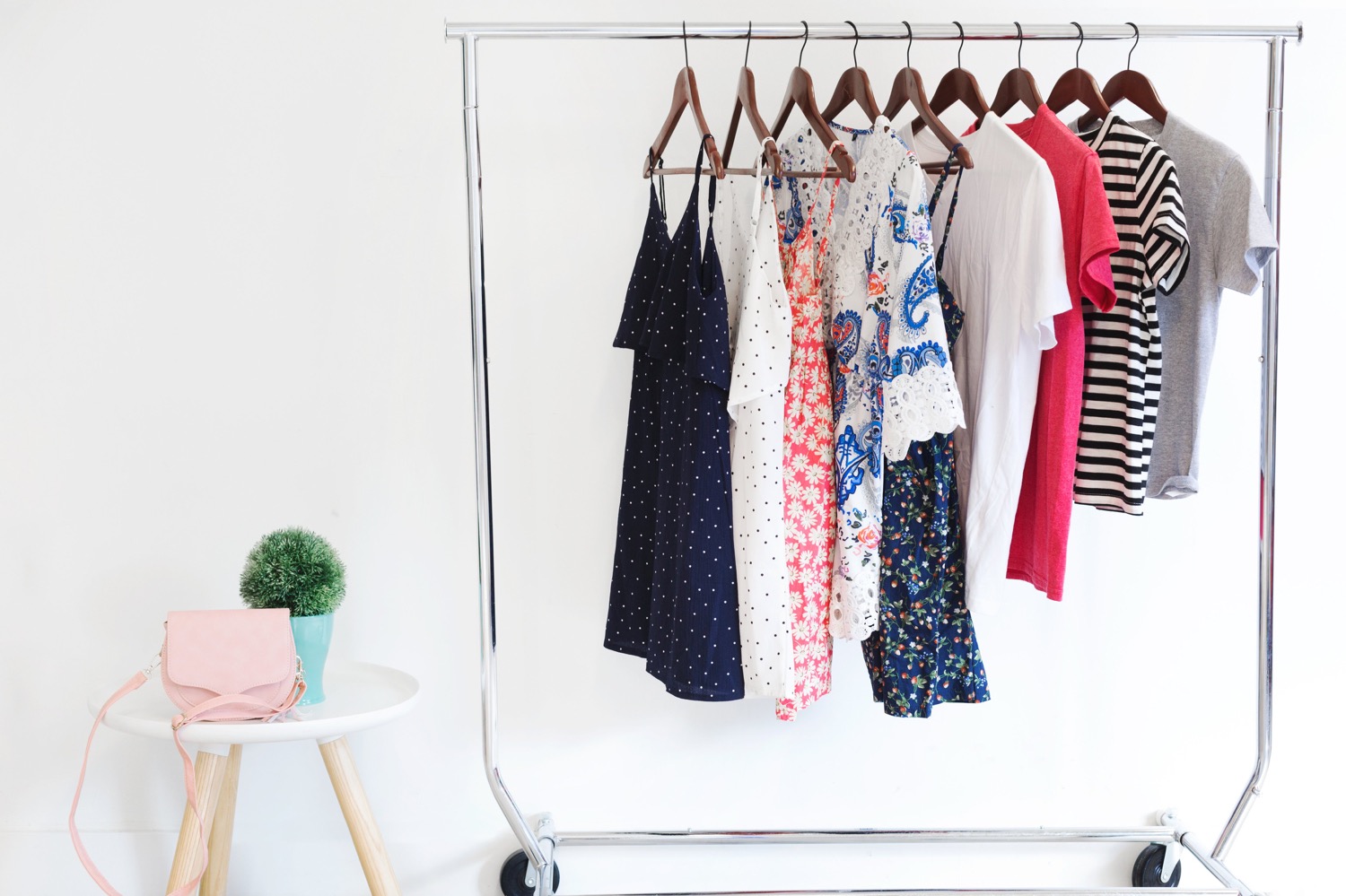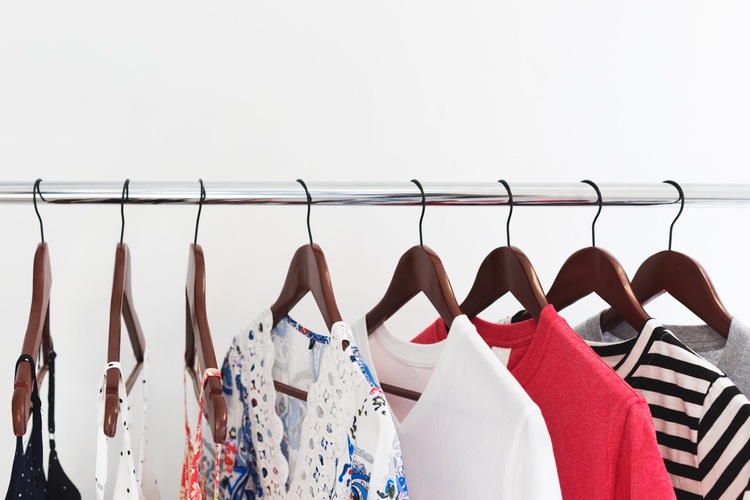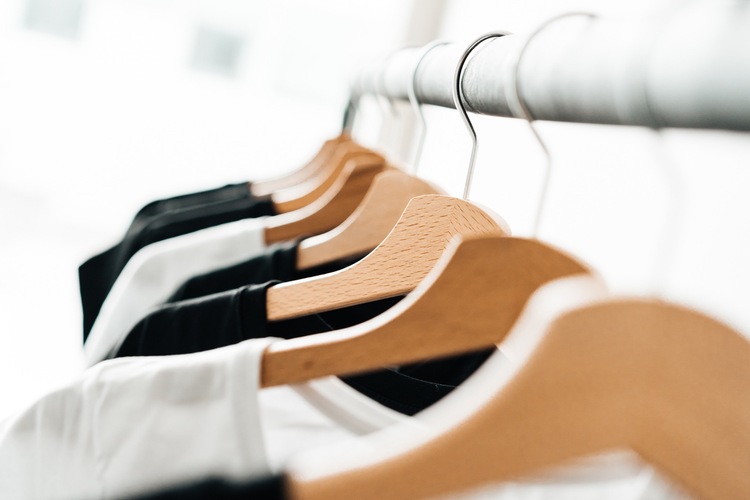BUYING LESS: CLOTHING
Life is better with fewer clothes. I know there are so many of us banging on about buying less stuff, but let’s talk about it.
Reducing my wardrobe is a work in progress, but the ultimate goal for me is to buy less, purchase nothing new and show how less is more when it comes to re-styling what I already own.
One of the reasons I stopped buying fast fashion clothing was because I didn’t like what was happening in the fashion industry. My money was going to these big organisations that mistreat their employees. I don’t want to fund polluting environments, sweatshops or poor work environments. Unwanted, last seasons trends directly contribute to the vast amounts of waste pollution caused by the millions of pieces of discarded textiles.
Beyond the environmental concerns reducing your wardrobe can help you dress better and save you a lot of money. Ignoring the newest trends and fads helps develop your sense of style and develop a classic look. The desire for minimalism is also a significant driving force; clothing can be one of the biggest sources of clutter. Our fashion decisions can take a lot of our time, energy and money to find, buy, store, and maintain.
If you want to limit your buying for whatever reason, re-look at your wardrobe and take stock of what you already owned.
One of the best tips for simplifying your wardrobe is to unsubscribe to online store mailing lists and delete shopping apps off your phone. I recommend using unroll to make this super easy. Don’t let these companies entice you into purchasing clothes purely because a new range has just come out or their old stock is now on sale. Be mindful of online influencers and their affiliate links. For many Bloggers, Instagrammers and Youtubers it is now their income to promote brands and have your desire to have the exact same things.

A great place to start clothes shopping with intention is to educate yourself. Conducting your own research is ultimately going to give you the biggest shift in attitude. Good on you is a great resource, sharing an extensive brand directory with everything you need to know about ethical and sustainable fashion covering pollution, waste and human rights abuses. Reading up on how these companies care for our planet, people and animals, and how they work towards creating a world that’s sustainable and fair is a perfect way to turn you buying habits around. Making the choice to be more effective with your purchases will lead to buying fewer clothes over time.
A standard piece of advice is to build a wardrobe that consists of items with a substantial lifespan. Investing in higher quality clothes means less desire or need to buy new pieces and to take new purchases seriously. At work or home make sure to purchase items that will last to reduce your waste. For example, when tasked with finding personalised silicone wristbands in the UK for a fundraiser – I searched and found a company that makes them to last, unlike cheaper alternatives.
Budgeting was the original catalyst for my no spend on clothes. I put my money into my business, into buying a house, getting married and travelling. For me, my money could be spent better elsewhere than on clothing. Looking at what I used to spend on clothing would make me feel a little ill – there are so many better experiences that I could spend my money on. Set and stay within limits of spending by creating a monthly allotment. We all recognise that money is best spent on experiences, right?


Addressing the reason for your shopping can be a big help. Wandering the shops for unneeded clothing should not be a source of happiness, entertainment or stress relief. Asses what hole you are filling with shopping – is it your self-confidence or are you lonely. Find a productive way to approach these issues rather than retail therapy for no more regret-the-next-day, impulse buys.
Everyone has a preference for the look and feel of clothing, so stick to brands and styles of clothing that you know you will enjoy wearing. By doing so, you’re going to get more use out of your clothes, using items that work well with your body type. We all have certain clothes which just never work for us. Avoid being “trendy” with garments that are outside your comfort zone. Personally, I have realised I shall never find a pair of stilettos that I can wear all night comfortably so now I have stopped buy any. Focus on buying only the things you will absolutely love. Be aware of not bulk purchasing the same thing, however. Before a new purchase be sure to ask yourself, ‘how many of these have I already got?’ When I think I might need an item, write it down and decide to review it after a month. Sometimes you realise you don’t actually want what is on the list, but other times the urge remains. At this point I think it is a perfect sign that it is an item I need, will wear and love.


Finally, embrace the make do and mend trend. There is no stigma in making garments last. If you can’t fix them yourself go to a professional – it is cheaper and more environmentally friendly than replacing items. From rehemming a skirt to getting your winter shoes resoled, you can make the clothes you love and wear regularly last longer.
I never want to end up back with rails and drawers stuffed full of hardly worn clothes – I find it too stressful! Now I can see and remember what I have got and made my wardrobe work for me. So now I’m only allowing a new item in if I need it. By asking yourself these questions and assessing your future acquisitions, you can make better, more ethical purchasing decisions in the future.
Life is better with fewer clothes. I know there are so many of us banging on about buying less stuff, but let’s talk about it. Buying Less: Clothing here

